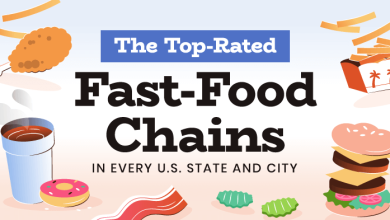There are many reasons why people appreciate fast food, and it’s vital to realize that not everyone does.
The following are some typical causes of the widespread use of fast food:
1. Convenience: As the name implies, fast food is quick. People may rapidly obtain their meals without having to spend time cooking or waiting in sit-down restaurants because it is easily accessible. This appeals particularly to those who lead busy lives or who want a quick supper on the fly.
2. Accessibility: Eating at full-service restaurants can be more expensive than buying fast meals. For those on a low budget or seeking a quick, inexpensive dinner, it may be an affordable option.
3. Flavor: Fast food is created to be flavorful and appealing to a variety of palates. Many people find that the application of particular spices, sauces, and cooking methods may make fast food items quite appetizing.
4. Familiarity: Consistent menus at fast food restaurants frequently include dishes that patrons have grown up with or have been exposed to through advertising. This reassuring familiarity may influence customers to select fast food restaurants.
5. Cravings and Comfort: Fast food is frequently linked to indulgence and comfort. Many people find that certain fast food items are comforting or satisfying, which causes them to crave them frequently.
6. Marketing and Branding: Fast food businesses make significant investments in marketing and branding, which can build a deep emotional bond with consumers.
7. Social Factors: Fast food businesses are frequently used as gathering places by friends and families. The social component of dining out at these places can enhance and appeal to the experience.
8. Accessibility: People looking for a quick supper can choose fast food restaurants because they are common and simple to find in many locations.
9. Portion Sizes: People who want to feel full and satisfied may find fast food tempting because it frequently delivers generous portions for a reasonable price.
10. Habit and Routine: Due to its accessibility and ease, eating fast food can become a habit for some people.
While eating fast food might be easy and fun, repeated intake can lead to health problems. Eating a regularly balanced and satisfying diet is essential for overall health and wellbeing.
Effects of fast food:
The consequences of fast food on your health and wellbeing can be both immediate and long-term. Even if infrequent or excessive eating of fast food may not have substantial negative effects, it can have the following negative impacts:
Weight Gain: The calories, bad fats, and sugars in many fast food items are high. Regular intake can cause weight gain and a higher chance of being obese, which is linked to a number of health conditions, including as joint problems, diabetes, and heart disease.
Poor Nutrition: Essential elements including vitamins, minerals, and fiber are frequently lacking in fast food. A diet high in fast food might eventually lead to nutritional deficiencies and obesity.
Heart Health: Trans fat, saturated fat, and salt levels in fast food are frequently excessive. These increase the risk of high blood pressure, raised amounts of cholesterol, and coronary artery disease and stroke.
Type 2 Diabetes: The high sugar content, excessive calories, and unhealthy fats found in many fast food items can all increase insulin resistance and the risk of developing type 2 diabetes.
Fast food usually has little fiber content, which can contribute to digestive problems like constipation and bowel movements that are not regular.
Increased Cancer Risk: Some fast food items may contain chemicals, preservatives, and additives that have been associated with a higher risk of developing certain cancers.
Poor dental health: Sugary meals and drinks, which are frequently present in fast food meals, can cause gum disease and cavities in the teeth.
Mental Health: An increased risk of depression and other mental health problems has been linked to a diet high in fast food. The over consumption of sugar and unhealthy fats might have a detrimental effect on mood and cognitive function.
Fast food’s high levels of sugar, salt, and harmful fats can lead to cravings and addictive eating habits, making it difficult for people to make healthier dietary choices.
Reduced Energy Levels: Fast food frequently contains little in the way of complex carbs, which can cause energy peaks and valleys. This may lead to weariness and decreased productivity.
Long-Term Health Effects: Eating a lot of fast food can have a cumulative effect over time that can cause major chronic illnesses like heart disease, diabetes, hypertension, and some types of cancer.
Impact on the environment: Deforestation, greenhouse gas emissions, and excessive resource consumption are all associated with the fast food industry.
It’s crucial to understand that occasionally eating fast food won’t likely do much harm. However, including it frequently in your diet can be detrimental to your health. It is recommended to consume less fast food and to focus on eating a balanced diet rich in fruits, vegetables, whole grains, lean meats, and healthy fats. Fast food has several drawbacks, but you can mitigate some of them by engaging in frequent activity.




